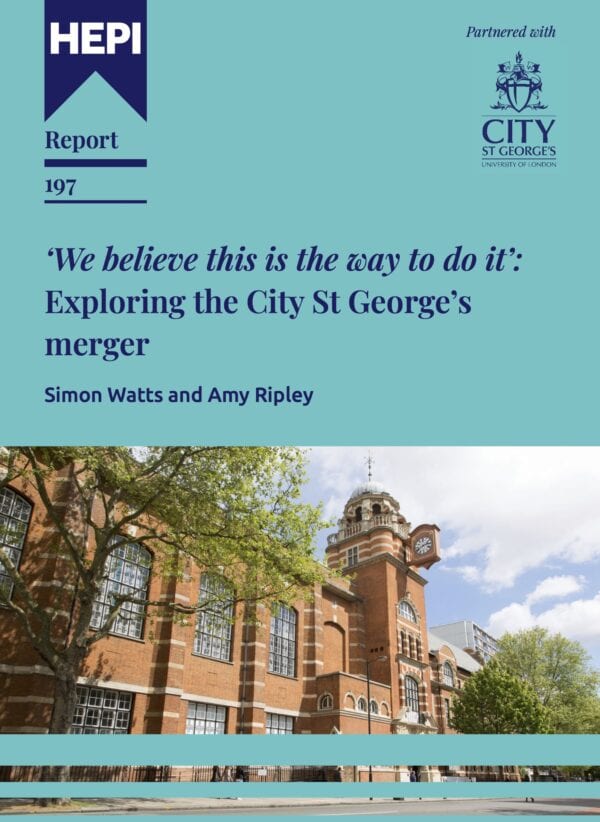Head or Heart? How do applicants make decisions about higher education?
The blog was kindly authored by Jenny Shaw, Director of Higher Education External Engagement at Unite Students.
Thousands of new undergraduates are taking their first steps into higher education, but what has brought them there? Have they weighed up all the evidence, or have they followed their heart? The answer is, of course, much more complicated.
The Unite Students Applicant Index, in partnership with HEPI, has tracked the experiences of prospective students since 2022, and this year we asked applicants to tell us, in their own words, why they chose their first-choice higher education provider. An initial analysis seemed to hint at the Teaching Excellence Framework’s influence on international students, but a subsequent deep-dive using inductive coding found a more complex and sometimes surprising story that reveals applicants’ desires, concerns and ambitions.
Academic excellence
International applicants tended to use terms such as academic excellence, good quality teaching or that the provider was best or excellent for a specific field of study. Some expressed their admiration of academic staff: expert faculty; very excellent teaching team. A few Chinese students described their chosen provider as zhuānyè, translated as ‘professional’ but which also implies specialist expertise.
While a few UK students talk positively about teaching in general, for example great academics; good education, their comments more often refer to a specific course. Frequent comments such as top rated for my course or it’s good for psychology suggest that subject-level rankings hold more weight than overall teaching quality.
Additionally, about one in four international applicants, though a much smaller proportion of those from the UK, are primarily motivated by overall reputation or prestige. International applicants tend to cite the fame of their chosen university and its place in international or UK rankings. UK applicants tend to be less specific, for example good uni; its reputation and they sometimes use the Russell Group as a signal of high reputation. They also rely on word of mouth or their own perception: I’ve heard good things; It seemed the best.
Another common motivation for provider choice is linked to the course of study, independent of course quality. This theme includes the availability of specific or niche course, the structure or content of a course, or a provider that offers an appealing range of courses. For a few international applicants, the provider has been recommended to them for a specific subject discipline.
Location, location, location
UK applicants have similar motivations, but their choice is more likely to be contingent on location. This could take the form of having to choose the best option that is commutable: It has forensic psychology as a study choice and it isn’t too far from home; or the course being a co-equal motivator alongside the location: I like the course and the city.
Location more broadly is a major motivation for UK applicants both as a primary and a secondary factor. For some, this is driven by the need to find a provider that is within commuting distance. But the theme also includes the choice of a particular location among UK applicants that reflects their own priorities and lifestyle preferences. This is in line with the growing importance of independence as a motivator: elsewhere in the survey almost 3 in 10 cite becoming more independent as a top motivator for going into higher education. While location can be a motivator for international applicants it is much less common and can be linked to personal recommendations or links to family and friends.
A few applicants were motivated by the supportiveness of a provider. This included being diverse which we know from the Living Black at University report can be important to applicants from racially minoritised groups. Having good support for international students was also mentioned. A few spoke about mental health or disability support, or just the perception of the university and its staff being understanding or lovely.
Employability is a surprisingly rare motivator. While other survey questions show the importance of employability generally, it’s surprisingly absent as a reason to choose a specific provider. When cited, it usually relates to the university’s offer or services around employability skills. Only occasionally it relates to the university’s track record of graduate employment.
Vibe check
However, a more common theme is the nebulous ‘vibe’, a theme that covers a range of emotionally-driven motivations. This may be a particular aesthetic on campus, sense of good fit or a lifestyle preference, and is surprisingly popular as a primary factor as well as being a secondary consideration in combination with other motivations. You may recognise it as a factor in your own higher education choices – I certainly do.
When it comes to the vibe, international applicants have a greater tendency to reference culture and perceptions of reputation: It has a long history and some beautiful buildings; Because it suits my style and it one of the best universities; The building is full of cultural atmosphere. They also express less specific sentiments such as: Great atmosphere; Because it is my ideal university.
UK applicants are more likely to say the university feels like a good fit or a comfortable place: It had a very welcoming feel; It looks like somewhere I’d fit in. They also express reasons that are less specific: Quite lowkey; I like the vibe; It’s soooooo cute. This may be a reflection of the importance of belonging in the student experience, and the higher levels of anxiety about belonging found among UK applicants elsewhere in the survey.
However, the last word should go to the applicants, both UK and international, who simply loved their chosen provider.
“This was my first choice because it has always been my goal and dream.”
“I love it!”
For them, this was reason enough.
You can read more from the Applicant Index at this link.







Comments
Johnny Rich says:
Excellent post. Thank you, Jenny.
Your commentary shows that students decide which uni to attend in much the same way that behavioural science tells us humans make almost all decisions. It is a complex interplay of irrational thinking (that’s not to say nonsensical or wrong, just not coolly reasoned), unconscious biases (especially confirmation bias), poor proxies and post hoc rationalisation.
How then do we feed information into choice? The answer is to drip-feed from an early stage what potential students need to know when they need to know it, just enough to keep challenging their preconceptions, keep fostering their curiosity and keep fuelling a growing understanding.
We need to recognise that choice is a process, not a moment and we serve it best by helping to guide someone through the process, instead of bombarding them with information and hoping they will be able to sort the signal from the noise.
Reply
Add comment